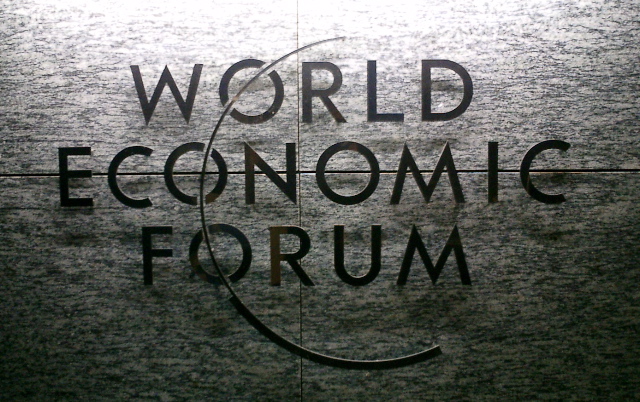Turning a profit from carbon emissions
 Switzerland - With the issues of climate change and the global economic crisis coming to a head simultaneously, world leaders have focused on tying the two together, and businessmen Saturday were trying to find ways to make money from a green economy.
Switzerland - With the issues of climate change and the global economic crisis coming to a head simultaneously, world leaders have focused on tying the two together, and businessmen Saturday were trying to find ways to make money from a green economy.
Europe's carbon credit trading program, in its second phase, is seen as being on the path to putting a price on pollution and creating a market that would allow for profit making.
"Pricing and cost will force a lot of adjustment for people," said Pierre LaGrange, an alternative energy investor, but added that a trading program "could only work if it were globally accepted."
He said Europe's politicians have expressed interest in setting more aggressive carbon reduction goals, if the rest of the world got on board.
With the 192 countries planning to meet in December in Copenhagen, in attempt to reach a new global climate deal, engaging with developing nations will be crucial to the outcome of the process.
Capping carbon emissions would force producers who exceed their permitted output amounts to buy credits from companies who have not, creating new jobs in the new market and also reducing carbon outputs by attaching a price to it.
To get people trading across borders, Lars Josefsson, from the large European power producer Vattenfall, suggested treating the credits in each country - which would each likely introduce its own system - like currency exchanges, which let people with one brand of cash do business with someone with another.
"This is a pragmatic way to go about globalizing cap and trade markets," he said, referring to the markets to cap or limit carbon emissions by trading them.
Ultimately, LaGrange said, the caps on emissions will have to be extended to the user, and not only to the energy producer.
"The place to start is behaviour change," said US Congressman Brian Baird. "The goal should be 20 per cent reduction in 20 weeks. Just walk through your daily life and see how much you can reduce."
"Energy efficiency is very doable, and 50 per cent of the solution," said Nic Frances, who runs a company which focuses on reducing power consumption. "It's what we do in our homes, domestic energy efficiency."
Concerns though have been made that carbon trading would lead to yet another market which could be used for profit without bringing about the needed improvements to the environment, while also it would inhibit the creation of new technologies and instead focusing on cleaning up the old ones.
"Cap and trade is fine," said Daniel Sperling, an author of Two Billion Cars, a book focusing on the growing number of polluting vehicles in the world.
"But we need something more technology forcing, which stimulates innovations," Sperling, a transportation expert, told dpa, adding that the economy would benefit.
In his own field, he said, new, cleaner cars would create more jobs.
"You can lower costs, create jobs and reduce lethal overheating," said Baird, using his preferred term in place of climate change, "and put money back in the pockets of consumers."
Hopes were pinned on the new US administration taking the steps to make it happen.
"If we turn climate change into an opportunity, it is the biggest opportunity since World War Two," said Josefsson, referring to the economic expansion that was brought about as a result of the war. (dpa)